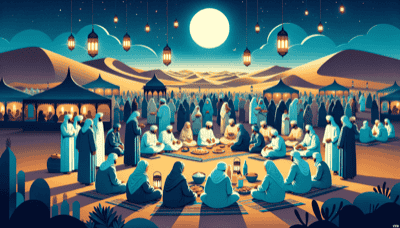We're here to help you keep count of the days to or since a date. Just click the button below and enter your chosen date to get started. Also choose the suggested days or search for a special day above #countingthedays

Eid al-Fitr, marking the end of the Islamic holy month of Ramadan, is a significant religious festival celebrated by Muslims in Afghanistan. It is known as the "Festival of Breaking the Fast" and is a time for communal prayers, feasting, and charity.
Eid al-Fitr has been celebrated since the time of the Prophet Muhammad. It commemorates the conclusion of the 29 or 30 days of dawn-to-sunset fasting during Ramadan. The beginning of Eid is determined by the sighting of the new moon, which varies from country to country.
On Eid al-Fitr, Afghans follow several customs:
Communal Prayers: The day begins with special prayers called "Salat al-Eid" in mosques or large open areas.
Zakat al-Fitr: Before attending the Eid prayer, Muslims are obliged to perform an act of charity known as Zakat al-Fitr, giving to those in need.
New Clothes: It's customary for people to wear new clothes on Eid as a symbol of renewal and purity.
Visiting Relatives: Afghans visit family and friends during the day. It’s an occasion to strengthen bonds within communities.
Feasting: After fasting during Ramadan, feasting is a significant part of Eid. Traditional foods like bolani, kabuli pulao, and various sweet dishes such as sheer khurma (a sweet milk-based dessert with noodles and dried fruits) are enjoyed.
Eid activities in Afghanistan typically involve:
Social gatherings where people exchange greetings by saying "Eid Mubarak" (Blessed Eid).
Children often receive gifts or money called "Eidi" from elders.
Recreational activities including games and music can be part of celebrations.
Eid al-Fitr fosters a sense of unity among Afghan Muslims. Despite political or social differences that may exist within the country, Eid serves as an occasion that brings people together in celebration and worship.